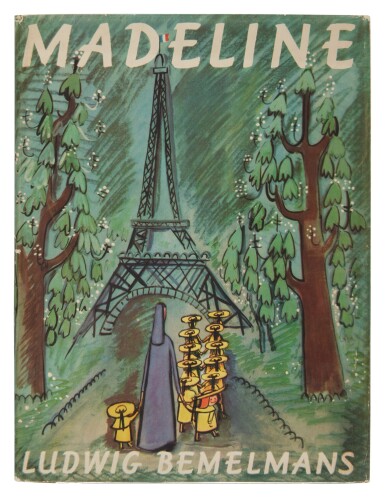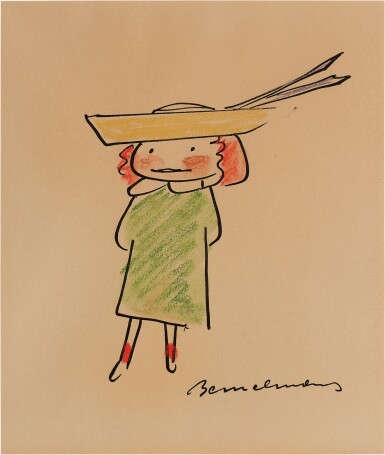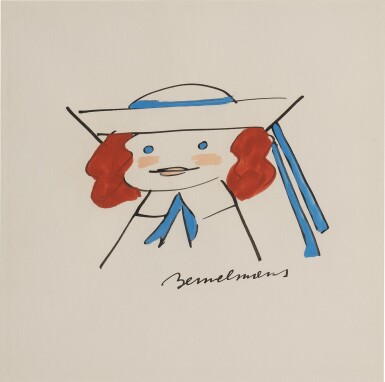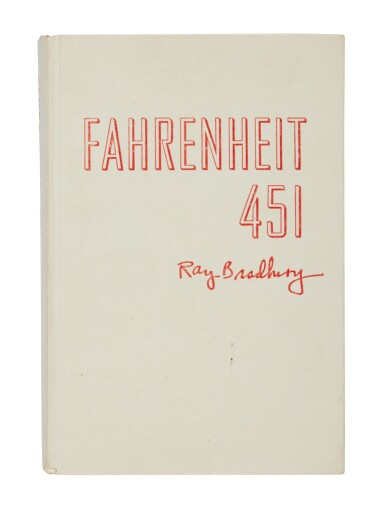Property of a New York Collector
Adams, JohnAutograph letter signed ("John Adams") as first Vice President, to Benjamin Rush, arguing for a strong executive power with an insightful and succinct comment on human nature and government
3 pages (2230 x 190 mm) on a bifolium (watermarked Posthorn | C & S), Richmond Hill, Mass., [17] February 1790 (the dating based on the placement the letter in the Adams Family Letterbook), docketed on verso of last leaf ("J. Adams"); central vertical fold neatly reinforced, repairs to short marginal separations at central horizontal fold. Matted, glazed, and framed.
"'I love my friend as well as you | 'But why should he obstruct my view?' contains a Truth, which has laid the foundation for every Despotism and every Absolute Monarchy on Earth."
An important and revealing letter from Adams to his personal physician and fellow signer of the Declaration of Independence, Benjamin Rush. After forgiving Rush's "long Silence" ("I had heard … of your new Engagements in the Colledge added to your extensive Practice and other virtuous Pursuits"), the vice president begins his letter proper by discussing the proposed constitution of Pennsylvania. At this time, Rush was an absentee Republican delegate to a Pennsylvania Constitutional Convention. The Republican Party was advocating for a new state constitution, which would replace a dominant, unicameral legislature with a bicameral legislature, with a stronger executive, and an independent judicial branch. Delegates met in the state Constitutional Convention from 25 November 1789 to 2 September 1790, resulting in the Pennsylvania Constitution of 1790, which was modelled on the Massachusetts constitution drafted by John Adams
As the debates between Republicans and Constitutionalists continued in Philadelphia, Adams commented, "I have no Pretensions to the Merit of your manly and successful opposition to the Constitution of Pensilvania: but I am very willing to be responsible for any Consequences of its Rejection." Adams's 1776 pamphlet Thoughts on Government was written in opposition to Pennsylvania’s constitution of that year, which expanded the franchise and enumerated the rights of citizens, making it the most democratic charter adopted by any of the original states. "I have never despised public opinion deliberately. if I have ever expressed myself lightly of it, it was in haste and without caution. on the contrary It is always to be respected and treated with decency, even when in Error: but never to be made the Rule of Action against Conscience,—it is seldom, and only in small Matters to be followed, implicitly. it is a Wave of the Sea in a Storm in the Gulph Stream, except when it is the Result of methodical Councils or secret Influence. It Should be guided and aided, as well as informed by those who are in Possession of all the Secrets of the state. in no nation that ever yet existed, were all the Facts known to the whole Body or even a Majority of the People, which were essential to the formation of a right Judgment of public affairs. The History of this Country for the last thirty Years, affords as many proofs of this Truth as that of any other Nation. how many times, both at home and abroad have our affairs been in situations, that none but Madmen would have thought proper to be published in detail to the People."
In his letter to Adams of 12 February 1790, Rush described his current apathy to public affairs: "The experience I have had in public pursuits, has led me to make many discoveries in the human heart that are not very favourable to it.— I shall leave some of them upon record by way of beacons to deter my children from engaging in public life.— One of them will be that 'a politician can never suffer from his enemies.'— The folly—the envy—and the ingratitude of his friends are the principal Sources of his sufferings."
Adams here responds by quoting a couplet from Jonathan Swift's "Verses on the Death of Dr. Swift":
"You are not the only one, who has Seen and felt The Jealousy Envy and Ingratitude of Friends.
"'I love my friend as well as You
"But why should he obstruct my view'
"contains a Truth, which has laid the foundation for every Despotism and every Absolute Monarchy on Earth. it is this Sentiment, which ruins every Democracy and every Aristocracy, and every possible Mixture of both, and renders a mediating Power, an invincible Equilibrium between them indispensible. never yet was a Band of Heroes or Patriots able to bear the sight of any one of them constantly at their head, if they saw any opening to avoid it. Emulation almost the only Principle of Activity, (except Hunger and Lust) is the Cause of all the Wars Seditions and Parties in the World. What is most astonishing is, that We Should be so ignorant of it, or inattentive to it. and that We should not See, that an independent Executive Power, able at all times to overrule these Rivalries, is absolutely necessary." (Swift's actual rhyme is "I love my friend as well as you | But would not have him stop my view.")
In response to Rush's observation that although he was once considered a firebrand for Independence he now wants nothing more than to pursue his medical practice, Adams summarizes the current political landscape: "There are two Parties my friend, who have united in some degree, to obscure the fame of the old Whiggs. The Tories are one, and the Young Fry is the other. By the latter I mean a sett of young Gentlemen who have come out of Colledge Since the Revolution, and are Candidates for fame.— There is a Sett of Men in this Country, who have hazarded too much, laboured too much, suffered too much, and Succeeded too well, ever to be forgiven. Some of these unfortunately are not men of large Views and comprehensive Information, and have adopted destructive systems of Policy. …" And Adams endorses Rush's retirement from public affairs, even though he personally regrets it: " You, my dear sir, enjoy the Esteem of the honest and enlightened and are perhaps more usefully and happily employed than others in places of more Eclat.— There is no Man however that I should see with more Pleasure in public Life, especially in Congress."
The remainder of the letter continues in this more personal vein. Rush's description of his domestic life makes Adams remorseful for his years of diplomatic service, "The charming Picture you give me of your Domestic Felicity, delights my inmost soul: but revives in me a lively regret for the ten years of my Life, that I lost:—when I left my Children to grow up without a Father." And Adams takes exception to Rush's claim that the study of modern European languages is more beneficial than Greek and Latin: "With a Knowledge of the modern Languages it is so easy to acquire the ancient, and the ancient are so great a step towards the Acquisition of the Modern, that I cannot help, putting in a Word more in favour of Greek and Latin."
Although Rush saluted Adams simply as "Dear Sir," his letter was addressed to "The Honble: John Adams Esqr: Vice president of the United States." In a postscript Adams instructed, "I forbid You, on pain of what shall fall thereon from giving me a Title in your Letters. I Scorn, disdain, despize, (take which Word You will) all Titles."
REFERENCE:Papers of John Adams ed. Georgini, et. al, 20:241–243; 20:238–240 (for Rush's letter)
PROVENANCE:The Elsie O. and Philip D. Sang Foundation (Sotheby Parke Bernet, 26 April 1978, lot 1 [part of a lot of ten autograph letters signed by Adams to Rush!]) — Sotheby's New York, 21 June 2007, lot 5 (undesignated consignor)
Property of a New York Collector
Adams, JohnAutograph letter signed ("John Adams") as first Vice President, to Benjamin Rush, arguing for a strong executive power with an insightful and succinct comment on human nature and government
3 pages (2230 x 190 mm) on a bifolium (watermarked Posthorn | C & S), Richmond Hill, Mass., [17] February 1790 (the dating based on the placement the letter in the Adams Family Letterbook), docketed on verso of last leaf ("J. Adams"); central vertical fold neatly reinforced, repairs to short marginal separations at central horizontal fold. Matted, glazed, and framed.
"'I love my friend as well as you | 'But why should he obstruct my view?' contains a Truth, which has laid the foundation for every Despotism and every Absolute Monarchy on Earth."
An important and revealing letter from Adams to his personal physician and fellow signer of the Declaration of Independence, Benjamin Rush. After forgiving Rush's "long Silence" ("I had heard … of your new Engagements in the Colledge added to your extensive Practice and other virtuous Pursuits"), the vice president begins his letter proper by discussing the proposed constitution of Pennsylvania. At this time, Rush was an absentee Republican delegate to a Pennsylvania Constitutional Convention. The Republican Party was advocating for a new state constitution, which would replace a dominant, unicameral legislature with a bicameral legislature, with a stronger executive, and an independent judicial branch. Delegates met in the state Constitutional Convention from 25 November 1789 to 2 September 1790, resulting in the Pennsylvania Constitution of 1790, which was modelled on the Massachusetts constitution drafted by John Adams
As the debates between Republicans and Constitutionalists continued in Philadelphia, Adams commented, "I have no Pretensions to the Merit of your manly and successful opposition to the Constitution of Pensilvania: but I am very willing to be responsible for any Consequences of its Rejection." Adams's 1776 pamphlet Thoughts on Government was written in opposition to Pennsylvania’s constitution of that year, which expanded the franchise and enumerated the rights of citizens, making it the most democratic charter adopted by any of the original states. "I have never despised public opinion deliberately. if I have ever expressed myself lightly of it, it was in haste and without caution. on the contrary It is always to be respected and treated with decency, even when in Error: but never to be made the Rule of Action against Conscience,—it is seldom, and only in small Matters to be followed, implicitly. it is a Wave of the Sea in a Storm in the Gulph Stream, except when it is the Result of methodical Councils or secret Influence. It Should be guided and aided, as well as informed by those who are in Possession of all the Secrets of the state. in no nation that ever yet existed, were all the Facts known to the whole Body or even a Majority of the People, which were essential to the formation of a right Judgment of public affairs. The History of this Country for the last thirty Years, affords as many proofs of this Truth as that of any other Nation. how many times, both at home and abroad have our affairs been in situations, that none but Madmen would have thought proper to be published in detail to the People."
In his letter to Adams of 12 February 1790, Rush described his current apathy to public affairs: "The experience I have had in public pursuits, has led me to make many discoveries in the human heart that are not very favourable to it.— I shall leave some of them upon record by way of beacons to deter my children from engaging in public life.— One of them will be that 'a politician can never suffer from his enemies.'— The folly—the envy—and the ingratitude of his friends are the principal Sources of his sufferings."
Adams here responds by quoting a couplet from Jonathan Swift's "Verses on the Death of Dr. Swift":
"You are not the only one, who has Seen and felt The Jealousy Envy and Ingratitude of Friends.
"'I love my friend as well as You
"But why should he obstruct my view'
"contains a Truth, which has laid the foundation for every Despotism and every Absolute Monarchy on Earth. it is this Sentiment, which ruins every Democracy and every Aristocracy, and every possible Mixture of both, and renders a mediating Power, an invincible Equilibrium between them indispensible. never yet was a Band of Heroes or Patriots able to bear the sight of any one of them constantly at their head, if they saw any opening to avoid it. Emulation almost the only Principle of Activity, (except Hunger and Lust) is the Cause of all the Wars Seditions and Parties in the World. What is most astonishing is, that We Should be so ignorant of it, or inattentive to it. and that We should not See, that an independent Executive Power, able at all times to overrule these Rivalries, is absolutely necessary." (Swift's actual rhyme is "I love my friend as well as you | But would not have him stop my view.")
In response to Rush's observation that although he was once considered a firebrand for Independence he now wants nothing more than to pursue his medical practice, Adams summarizes the current political landscape: "There are two Parties my friend, who have united in some degree, to obscure the fame of the old Whiggs. The Tories are one, and the Young Fry is the other. By the latter I mean a sett of young Gentlemen who have come out of Colledge Since the Revolution, and are Candidates for fame.— There is a Sett of Men in this Country, who have hazarded too much, laboured too much, suffered too much, and Succeeded too well, ever to be forgiven. Some of these unfortunately are not men of large Views and comprehensive Information, and have adopted destructive systems of Policy. …" And Adams endorses Rush's retirement from public affairs, even though he personally regrets it: " You, my dear sir, enjoy the Esteem of the honest and enlightened and are perhaps more usefully and happily employed than others in places of more Eclat.— There is no Man however that I should see with more Pleasure in public Life, especially in Congress."
The remainder of the letter continues in this more personal vein. Rush's description of his domestic life makes Adams remorseful for his years of diplomatic service, "The charming Picture you give me of your Domestic Felicity, delights my inmost soul: but revives in me a lively regret for the ten years of my Life, that I lost:—when I left my Children to grow up without a Father." And Adams takes exception to Rush's claim that the study of modern European languages is more beneficial than Greek and Latin: "With a Knowledge of the modern Languages it is so easy to acquire the ancient, and the ancient are so great a step towards the Acquisition of the Modern, that I cannot help, putting in a Word more in favour of Greek and Latin."
Although Rush saluted Adams simply as "Dear Sir," his letter was addressed to "The Honble: John Adams Esqr: Vice president of the United States." In a postscript Adams instructed, "I forbid You, on pain of what shall fall thereon from giving me a Title in your Letters. I Scorn, disdain, despize, (take which Word You will) all Titles."
REFERENCE:Papers of John Adams ed. Georgini, et. al, 20:241–243; 20:238–240 (for Rush's letter)
PROVENANCE:The Elsie O. and Philip D. Sang Foundation (Sotheby Parke Bernet, 26 April 1978, lot 1 [part of a lot of ten autograph letters signed by Adams to Rush!]) — Sotheby's New York, 21 June 2007, lot 5 (undesignated consignor)















Testen Sie LotSearch und seine Premium-Features 7 Tage - ohne Kosten!
Lassen Sie sich automatisch über neue Objekte in kommenden Auktionen benachrichtigen.
Suchauftrag anlegen